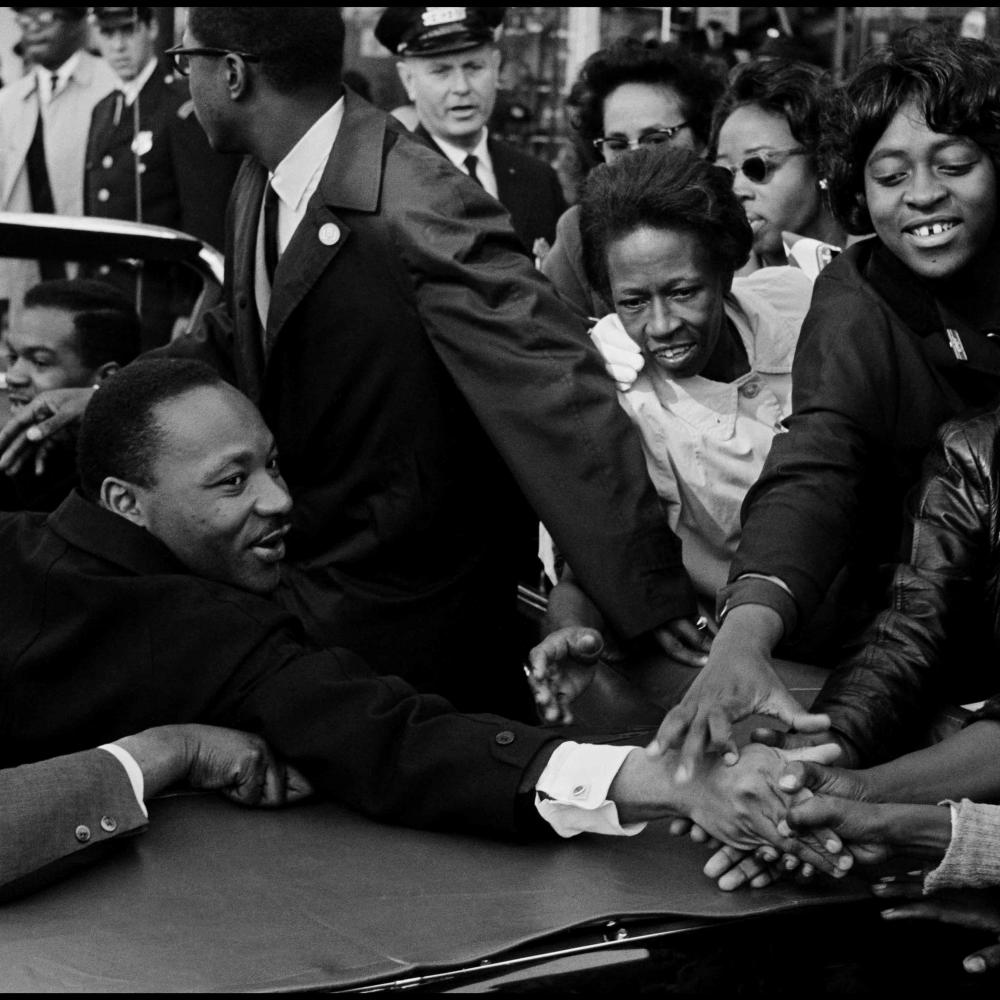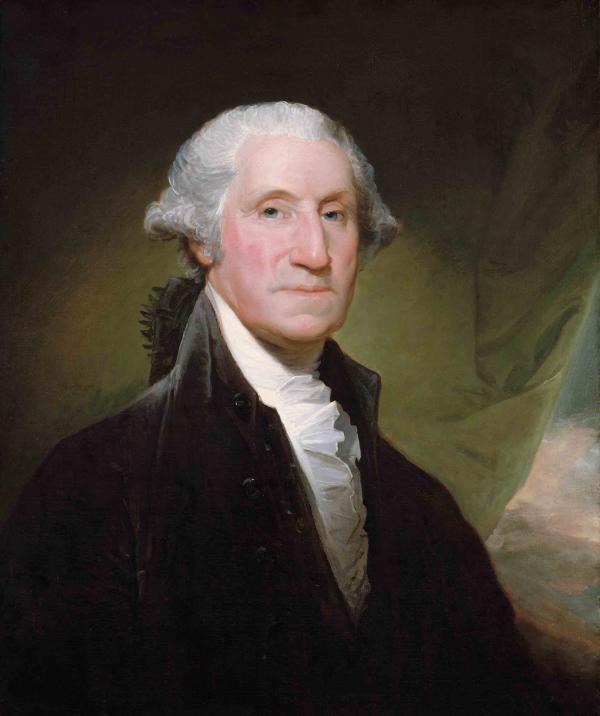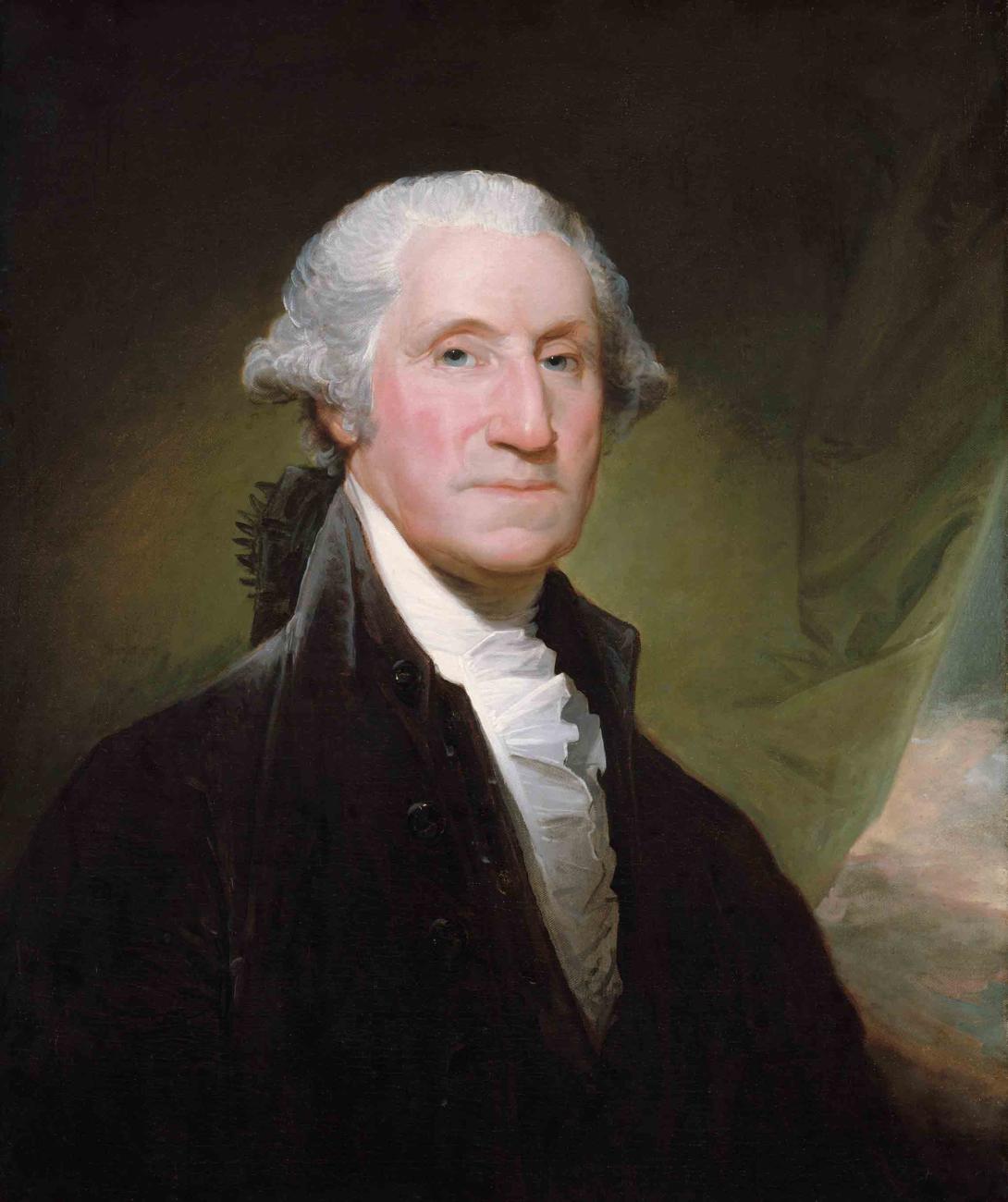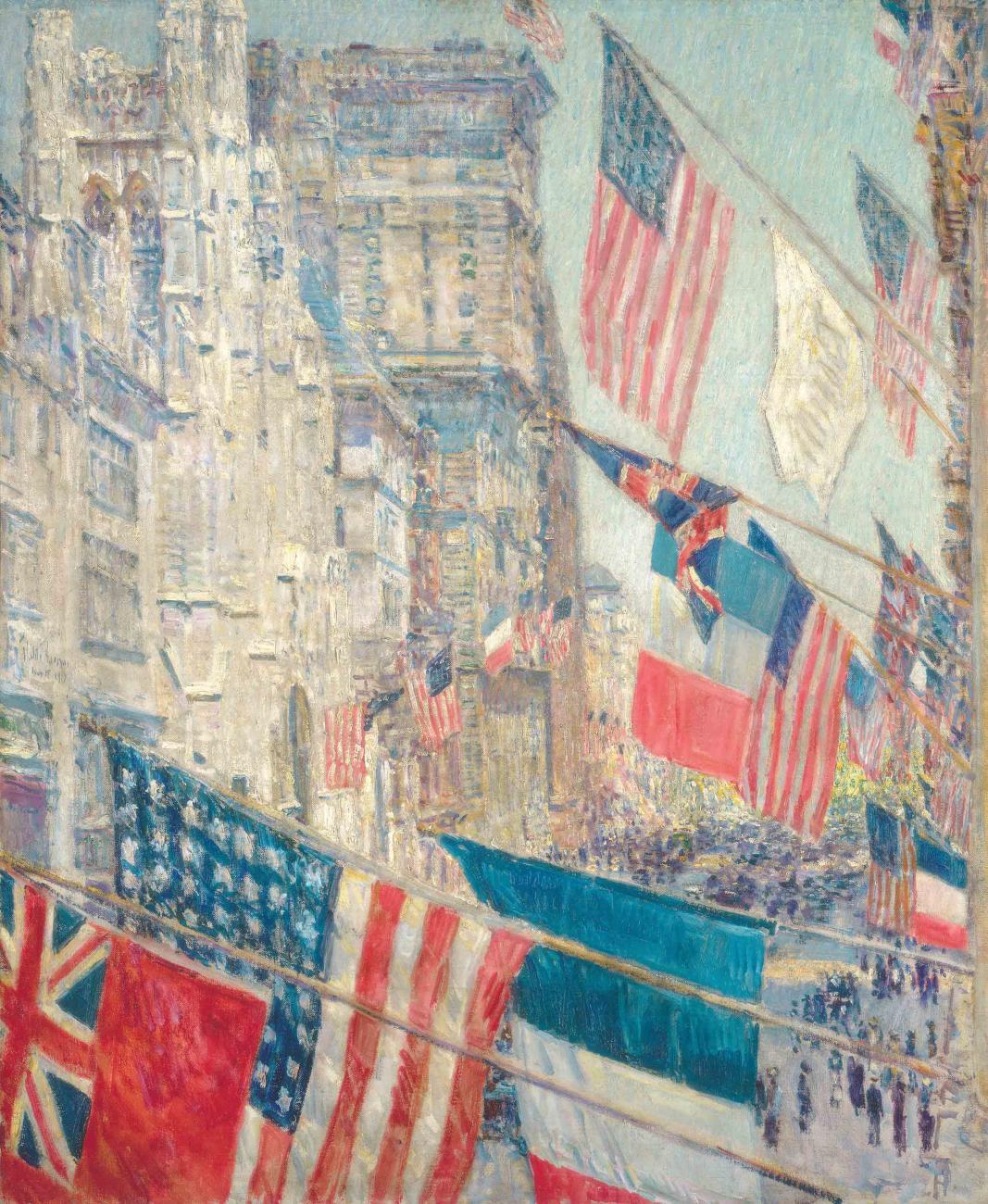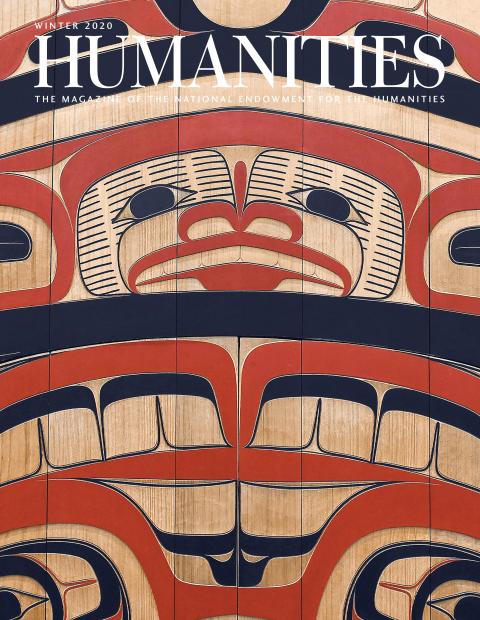HUMANITIES: Let’s start with the phrase “a more perfect union.” Why did you choose it for a major NEH initiative anticipating the 250th anniversary of the American founding?
JON PARRISH PEEDE: The phrase, of course, comes from the first sentence of the Constitution: “We the People of the United States, in Order to form a more perfect Union . . .”
When you’re developing a national initiative, you want aspirational goals and, ideally, you want that to be signaled in the name of the project. “A More Perfect Union” does exactly that. It conveys that we need to be in community, that we need to be united, that these United States are, as Lincoln wrote, “the last best hope of earth.”
The idea of a more perfect union isn’t just a static ideal of the Founders. We can see it undergoing refinement over generations and centuries, as it reappears in Frederick Douglass’s work, in the suffrage movement, in the sacrifices of GIs in World War II, fighting not just for democracy, but, indeed, the freedom of the world.
To talk of a more perfect union is to stay in continuity with Americans and their contributions in all eras. It is a way to maintain a bond with them and to always be moving toward—to quote Lincoln again—the “better angels of our nature.”
HUMANITIES: What kinds of projects will be funded under this grant category?
PEEDE: A More Perfect Union unites a lot of ongoing work at the agency. For decades, we have funded presidential papers, the papers of Martin Luther King Jr., of Mark Twain, Willa Cather, now Eleanor Roosevelt, Thomas Edison. We have funded important films about the Civil War, the Vietnam War, The Loving Story, any number of other civil rights documentaries.
But we also want to do new things through our grantmaking. One is to have national convenings, to have important conversations about, for example, the decline of civics education, the decline of historical literacy. It’s very hard to ask our youth and young adults to defend representative democracy if they have no foundational understanding of what the roots of our democracy are. So, one goal is to educate people about the core principles of government.
This, of course, builds on institutional strengths at NEH: our ongoing work with veterans and military families, investments in projects at tribal and community colleges, digital educational resources such as EDSITEment. Already we have been working with state humanities councils around the country, supporting humanities programming for their state anniversaries.
HUMANITIES: What do you expect or hope that the 250th anniversary will look like?
PEEDE: Across the nation and in many communities it will be a celebration, a commemoration of nationhood. It should be an opportunity to help tell tens of thousands of local stories. The story of a town, the story of a state, not just since 1776, but also the people on this land before nationhood began.
I believe this is a great opportunity to talk about Native American stories, Native Hawaiian stories, Alaska Native stories. It is an opportunity to talk about the full wonder and complexity of this nation.
HUMANITIES: Is the goal to celebrate the American achievement or to take measure of American achievements, counting our strengths and our weaknesses?
PEEDE: Certainly the semiquincentennial is an opportunity to recognize extraordinary American achievements. There are deadly diseases that no longer exist because of Americans. We have transformed science, medicine, technology, transportation, any number of fields. The humanities have made an extraordinary difference in shaping the United States, even as a young nation. The American Revolution and our governmental system gave birth to freedom movements across the globe. So, absolutely, American achievement is going to be a cornerstone of the semiquincentennial.
At the same time, we are going to commemorate chapters of American history where we failed to be our best selves. We are going to talk about the period of slavery, Reconstruction, the Jim Crow South. We are going to talk about failures of leadership that led to the Civil War, for example. This is what the humanities are about: how to tell a complicated story.
Even when we talk about American triumph and sacrifice in World War II, helping to free the world from tyranny, it should not be lost on us that we were still racially segregated as a nation. We liberated the Nazi death camps and ended the Holocaust, yet our government also interned Japanese and Japanese Americans at home. One can tell both stories together in a balanced, evidenced-based manner. That’s an essential charge of the humanities: to be the opposite of mere dogma and ideology.
HUMANITIES: With A More Perfect Union, you want to see projects engaging Native American history and culture, but it’s not as if this is new for NEH.
PEEDE: Yes, one area of great leadership by the Humanities Endowment from its earliest years is the preservation and presentation of Native American languages and culture. For instance, in 2017 we developed a partnership with the First Nations Development Institute to revitalize Native American languages through immersion courses.
Throughout the country, NEH is well known to indigenous people for helping to preserve their culture and language. One way we do that is to have Native Americans serving on our peer-review panels and National Council and advising the chairman on how we might proceed with our grantmaking. I have traveled to several tribal colleges and reservations to underscore this commitment and have increased our overall funding in this area, and our state humanities councils have strong ties to Native American communities.
HUMANITIES: As a society we have been giving more attention to African-American history and discussing it with a new intensity in recent years. How does it fit into A More Perfect Union?
PEEDE: A More Perfect Union is going to tell the story of America. And one cannot tell the story of America without telling the story of African-American culture, history, and achievement. Again, NEH has been doing so since our founding in 1965.
We have funded notable national films, such as Freedom Riders and Jazz Ambassadors. We funded a documentary by Stanley Nelson on the history of HBCUs that aired in 2017.
At Tuskegee, a 2018 NEH grant helped establish a new African-American studies minor on the built environment and the role of African-American architects in the South.
At Albany State, another 2018 grant allowed for a new minor in cultural heritage to create a new pipeline for students at HBCUs to enter into museum careers.
Recent NEH grants support the infrastructure of African-American cultural institutions, an anthology of African-American poetry, films about notable African Americans and the civil rights movement, and more. For more than fifty years, our agency has made a systematic investment in sharing African-American culture, history, and achievement. As part of A More Perfect Union, support for such work will continue.
HUMANITIES: How is A More Perfect Union related to the general issue of historical literacy, which you’ve discussed in speeches?
PEEDE: Illiteracy can be devastating. Those who are illiterate do not have the opportunity to pursue higher-skill jobs. They are incarcerated at a higher rate. They have shorter lifespans. Many of our state humanities councils tackle multigenerational illiteracy through Prime Time Family Reading and other programs. Historical illiteracy is a different matter, with equally grave societal implications.
I am discussing people who can read and interpret educational resources but do not. They have graduated from high school, even college. Yet they are functionally illiterate when it comes to U.S. history. They do not, for example, understand the founding ideals of our nation and, thus, are not fully engaged citizens.
They risk losing motivation to defend what they do not understand. As a result, we are living increasingly in a bifurcated America where civic engagement is no longer a given. Broad engagement is essential if we are to maintain the American experiment and ensure societal cohesion.
We at NEH cannot change this cultural drift our-selves. It is not our charge. But what we can do is make catalytic investments in those organizations and projects that are trying to turn this trend around.
And we can shine a light on the problem. We can talk about the fact that widespread historical illiteracy will result in failures of domestic and foreign policy and in an economically weaker nation that is no longer a leader in innovation, much less a leader in humanistic areas such as moral reasoning and ethics.
HUMANITIES: Are you following in the tradition of, say, the Nation at Risk report, which in 1983 faulted American education for an overall decline in standards?
PEEDE: I’m following in the tradition of a number of chairmen of this agency of various political persuasions, and we’re all coming back to the same point, which is that we are, as a nation, better than this.
Our national resources are such that we can have a stronger educational system and a more comprehensive approach to teaching American history and culture.
What we need is the will to do so. We need that at the local school board. We need that at the legislative level in the states. We need that at the federal level. We need that at the highest levels of our universities.
Quite often the organizations that are getting it right are community colleges because they are saying, over and over, there are some foundational skills you must have. There are foundational vocational skills on one side. And there are also foundational life skills, societal skills, communication skills that you need.
I know that surveys of U.S. history and civics may not be the most exciting courses for advanced scholars to teach. They are, however, essential to developing an informed citizenry. If you do not have a local library in your life, or a local museum, or a local history center, and don’t watch PBS or listen to other educational programming, then you’re largely dependent upon what you received at school, and comprehensive sequential learning has broken down in our schools.
HUMANITIES: We’ve talked about history and civics. What about literature? What about poetry? Surely, these fit in somewhere.
PEEDE: When we commemorate transformative moments in our lives, we turn to poetry over and over again. It may be Hebrew songs in the form of Psalms, it may be a phrase from Emily Dickinson. “The Star-Spangled Banner” began as a poem. It’s not surprising that we remember the poetic flourishes of the great speeches by Lincoln (“the last full measure of devotion”), FDR (“a date which will live in infamy”), Kennedy (“ask not what your country can do for you”), Reagan (“These are the boys of Pointe du Hoc. These are the men who took the cliffs.”). In the book Democracy and Poetry, based on his Jefferson Lecture, Robert Penn Warren wrote in the context of the bicentennial, “We cannot discuss democracy or poetry as existing outside of history, as a matter of timeless, unconditioned options. They, like all things that we esteem or abhor, represent developments in time.” I concur. So, yes, poetry is indeed a natural medium for commemorating the 250th anniversary of nationhood.

